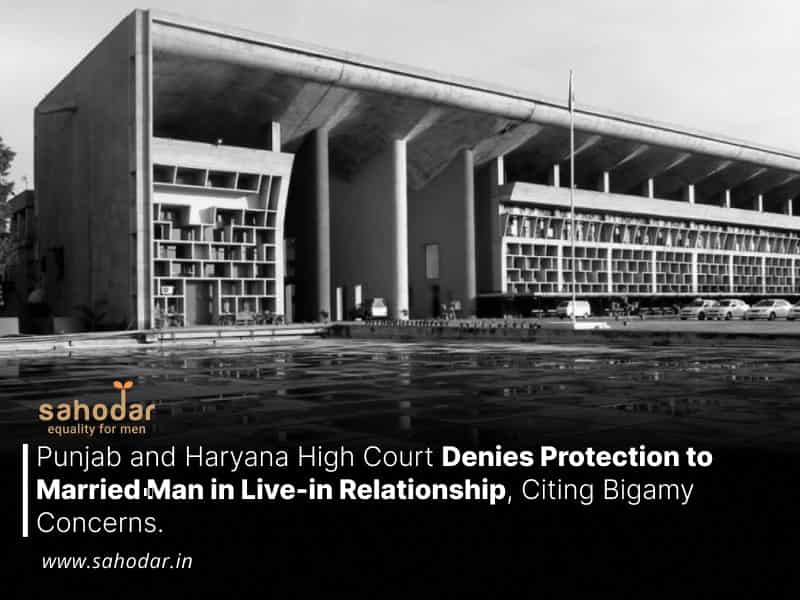If a married man is living a lustful and adulterous life without obtaining a divorce from his earlier spouse, it may constitute the offence of bigamy, the Court said.
In the case titled Reena Devi and Anr vs State of Punjab and Others, the Punjab and Haryana High Court, presided by Justice Kuldeep Tiwari, observed that engaging in a “lustful and adulterous” lifestyle without obtaining a divorce from a previous spouse could lead to potential charges of bigamy under Section 494 of the Indian Penal Code. This legal standpoint was emphasized in the context of the court’s decision to deny police protection to a cohabiting couple. Justice Tiwari pointed out that the man involved was still legally married and had a two-year-old daughter from that marriage.
“Without obtaining any valid decree of divorce from his earlier spouse and during subsistence of his earlier marriage, the petitioner No.2 [man] is living a lustful and adulterous life with the petitioner No.1 [live-in partner], which may constitute an offence punishable under Sections 494/495 of the IPC, as such a relationship does not fall within the phrase of ‘live-in relationship’ or ‘relationship’ in the nature of marriage,” the Court said.
Section 494 of the Indian Penal Code categorizes bigamy as a punishable offense, carrying a maximum penalty of seven years in prison and a fine.
In the ongoing legal proceedings, it has come to light that a divorce case between the petitioner and his spouse is currently underway in the Family Court. Despite this ongoing divorce case, the Court has pointed out that the actions of the petitioner could still be considered a criminal offense under Sections 494 (getting married again while still being married) and 495 (concealing a past marriage) of the IPC.
In an attempt to seek legal protection, the petitioner and his live-in partner approached the Court, expressing concerns about potential threats from their respective families. While the petitioner’s family has seemingly accepted their relationship, the live-in partner’s family allegedly issued threats of physical harm.
However, Justice Tiwari scrutinized the claims of threats in the petition, describing them as “bald and vague.” The Court emphasized the lack of supporting evidence or specific details outlining the nature of these threats. Consequently, the Court expressed hesitation in accepting these claims without substantial evidence.
As a result, the Court dismissed the petition, suggesting a possible underlying motive for its filing—to preemptively avoid criminal prosecution in the event of adultery allegations.
“To the judicial mind of this Court, under the guise of invocation of the writ jurisdiction of this Court, the hidden intent of the petitioners is just to obliquely obtain the seal of this Court on their conduct,” the Court said.

